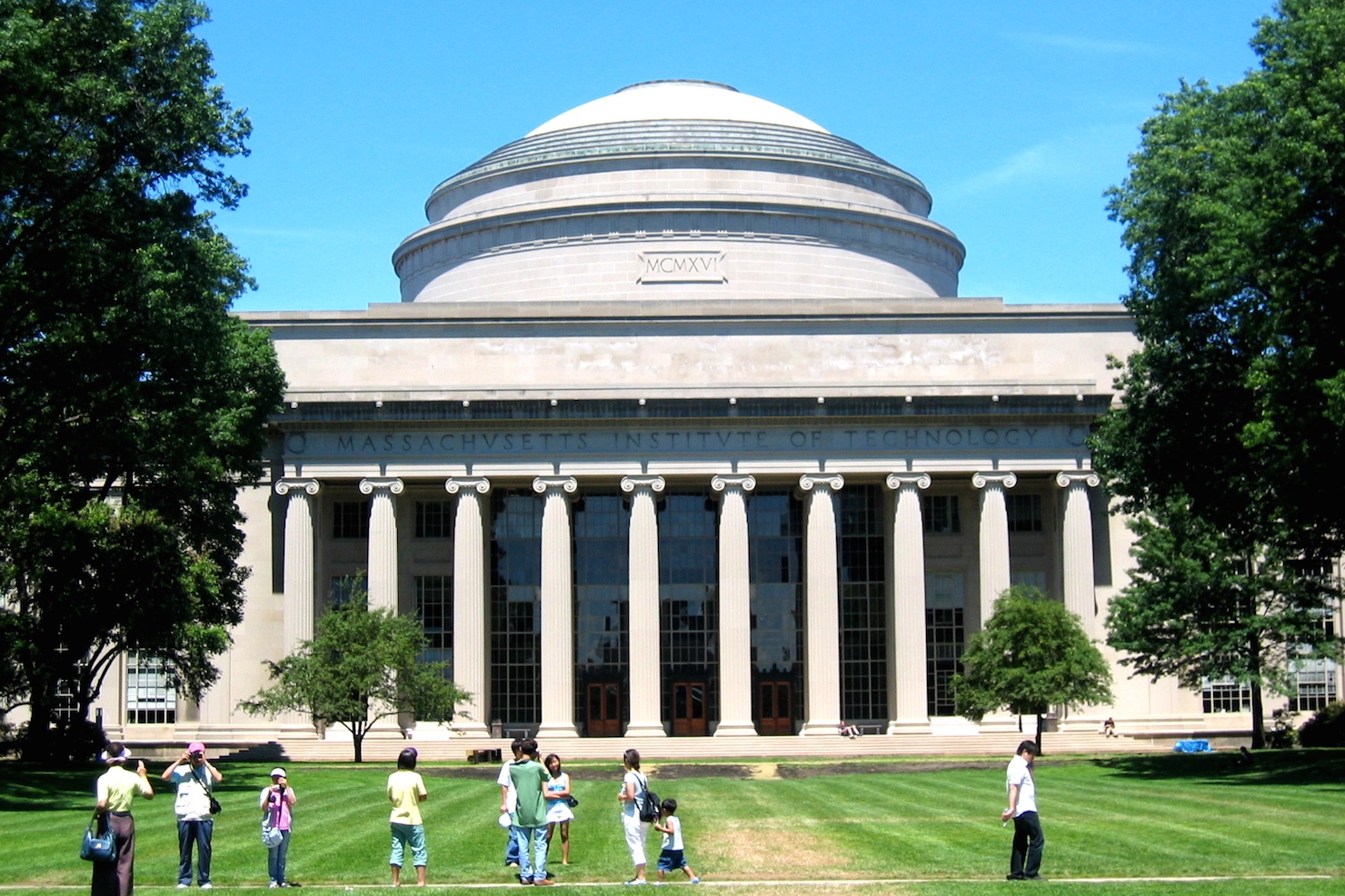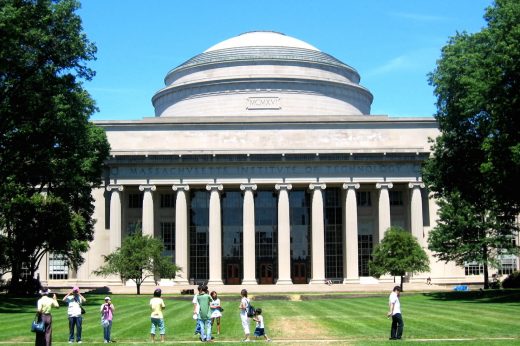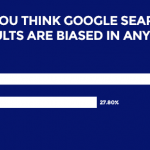MIT Raising Big Bucks From Corporations to Fund A.I. “Moonshots”

MIT plans to raise “hundreds of millions of dollars” from companies and philanthropic donors for a long-term, wide-ranging research initiative bringing together faculty, students, staff, and industry to attempt to better understand human intelligence—and use that knowledge to deliver breakthroughs in artificial intelligence that might have a broad impact on society.
The initiative—called MIT Intelligence Quest, or MIT IQ—launches at a time when machine learning and other A.I. technologies are driving real business tools and consumer products, from sales and marketing software to voice-controlled speakers. A.I. is also starting to creep into higher-stakes industries, like healthcare, and advocates believe it’s poised to transform virtually every industry in the future.
But the path ahead isn’t clear. Many of today’s A.I.-enabled products (or those purporting to be such) are built primarily on discoveries that are about 30 years old, an issue that could hamper the industry, as MIT Technology Review explored in a September article.
“The foundations of A.I. being used today are in fact relatively old,” MIT president Rafael Reif said in a conference call with journalists ahead of today’s announcement. “If we want A.I. breakthroughs, it’s going to take research in new science. That’s a central inspiration for MIT IQ.”
Josh Tenenbaum, a professor in MIT’s Department of Brain and Cognitive Sciences, said he recently attended an A.I. industry gathering convened by Google, where he observed a “real hunger” among companies to “replenish the well” of A.I. ideas and talent.
If done well, the new MIT initiative could help fulfill those wishes—and perhaps raise the stature of MIT and the Boston area in the field, local observers say.
“Over the last five years, the leading A.I. work has been done at Google, Apple, and other large tech companies,” said Jamie Goldstein, a partner at Boston-based venture capital firm Pillar Companies, in an e-mail to Xconomy. Goldstein said he thinks the IQ initiative “will bring MIT back to the forefront of this important space.” It could also strengthen the Boston region’s efforts to play a leading role in A.I. innovation, added Pillar partner Sarah Hodges.
Krishna Gupta, a partner at Boston-area venture firm Romulus Capital, called it a “good move” by MIT to establish a “coordinated A.I. center of excellence” to compete with well-funded A.I. hubs on the West Coast and in other countries, like Canada and China.
“There is no reason MIT should be anything other than the best-positioned group out of all of the aforementioned ones, and it will take a more coordinated approach to accomplish it,” Gupta wrote in an e-mail. “It is important not just for MIT, but for the country’s ambitions to play a greater role in the development of the future of human-machine interactions and intelligence more generally.”
MIT intends to secure most of the capital for IQ through corporate sponsorships and philanthropic donations, said Anantha Chandrakasan, dean of MIT’s School of Engineering.
Reif said he anticipates corporations will want to sponsor IQ in order to expand the pipeline of A.I. talent, as well as support the creation of new technologies that they might use to improve their own products.
IBM has already signed on as an early partner of MIT IQ, which builds on the work of the two organizations’ joint A.I. research lab announced in September. IBM is pouring $240 million over 10 years into that lab. The tech giant hasn’t committed additional funding to MIT IQ, but the two sides are discussing “how to expand the scope” of their relationship, Chandrakasan told Xconomy.
“They want to be an integral part of the MIT IQ, helping us shape the vision, along with other players,” he added.
MIT has increasingly tapped corporations to fund research efforts in recent years. The IBM A.I. lab is one example, but there’s also the $25 million Toyota-funded autonomous vehicle research center at MIT’s Computer Science and Artificial Intelligence Laboratory (CSAIL), as well as the 80-plus companies that fund much of the $45 million annual budget for the MIT Media Lab. But IQ could be MIT’s most ambitious corporate-backed initiative yet, both in terms of the amount of capital it’s trying to raise and the scope of the program, which aims to stimulate research across basically every discipline.
The plan is for MIT IQ to fund research into “moonshot” ideas that take years or decades to achieve, as well as projects that deliver near-term benefits and might spur new startups or technology that gets licensed to existing businesses, Institute officials said. Researchers will also explore the “societal and ethical implications” of A.I. technologies.
“In the not too distant future, A.I. will be the dominant source of new wealth, one that could also become a new source of inequality,” Reif said. “But it does not have to be that way. I strongly believe that getting this right is one of the most important challenges of our time.”
MIT is structuring the initiative as two linked entities. The first, “The Core,” aims to “advance the science and engineering of both human and machine intelligence,” according to a press release. The idea is that the intelligence research efforts will feed each other: research into the human brain will hopefully guide the development of algorithms and “wiser” machines, and computer science insights will ideally drive deeper understanding of human intelligence.
The second piece of IQ, “The Bridge,” will focus on applying these discoveries to all disciplines, including material design, synthetic biology, finance, and drug discovery, Chandrakasan said. It will provide resources to researchers, students, and staff, including educating them on A.I. tools; negotiating with companies to access their data sets that could help with algorithm development; and providing software, special computing hardware, and other enabling “infrastructure.”
Researchers from all five schools on MIT’s campus will be eligible to apply for funding from IQ, Chandrakasan said. MIT plans to establish shared work spaces on campus for IQ work. The locations and square footage have yet to be determined, he said.
It’s reasonable to question whether MIT needs something like IQ. The Institute is already one of the world’s most prolific generators of new technologies and companies, and it has been adding various campus entrepreneurship resources in recent years, including creating The Engine startup incubator and $200 million venture fund. In addition, there are currently more than 200 researchers on campus working directly on human and/or artificial intelligence, MIT said, and some of their research already cuts across different disciplines and campus labs.
But MIT envisions IQ creating a “framework” that will spark more conversations and joint research across an array of fields, Chandrakasan said. The initiative is also intended to connect and enhance efforts happening on campus, like at CSAIL and the Media Lab.
“One way to think about this is we’re amplifying the existing research on campus by providing them additional resources, whether it’s funding, compute time, and data sets,” Chandrakasan said. “Part of this is going to be community building.”
Tenenbaum, the cognitive sciences professor, said that it can be difficult for faculty to pursue “moonshot” ideas because they get stuck in the “normal rhythms of academic life.” The IQ initiative could provide the long-term funding and institutional support required to spend years working with peers on solving a big challenge. “To be able to have that kind of impact … we need to change a little bit how we do things,” he said.
(28)












